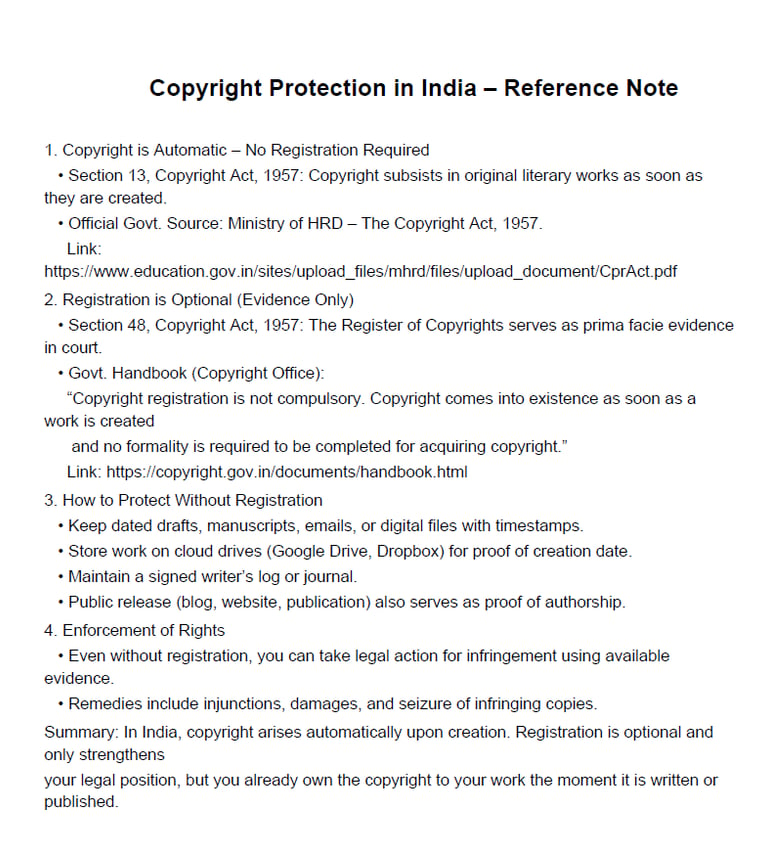Echoes of the Forgotten Guardians
The Dawn of the Great Ordeal
From the silence of sacrifice, humanity was born—carrying within its mortal heart the memory of abundance and measure, waiting to awaken once more.
When Ayonijā, Anantshakti, Yakṣhirā, Rudraveena, and Vajrastra crossed the threshold of the Great Ordeal, they found themselves swallowed by a place unlike any other, a realm that defied the very senses. Before them stretched “Nowhere”—a vastness where nothingness reigned supreme. A white fog rolled endlessly, unbroken and unbound, so thick that even the ground beneath their feet seemed woven of the same mist. They stood suspended in a haze without sky, earth, or horizon, as though existence itself had been thinned to a single breath. Confusion weighed upon their hearts, for here there was no landmark, no sound, no light beyond the pallid whiteness that clung to their eyes. Yet within this strangeness, they felt the pulse of a greater truth, as though the silence itself whispered the enormity of what lay ahead.
Out of this boundless fog emerged a figure radiant beyond comprehension. She seemed neither to walk nor to descend but to shimmer into being as though the fog itself bowed to form her outline. Her beauty was luminous yet serene, her presence like both the fierce brilliance of the sun and the tender shimmer of a star. Draped in flowing robes that shimmered with golden and silver threads, her hair fell like dark rivers through the fog, and her eyes held a wisdom that pierced both silence and uncertainty. She introduced herself with a voice both gentle and commanding, “I am Aman—the Radiance of Sun and Star. I am the guide appointed to walk with you through the Great Ordeal. Each of the ten paths will rise before you as trials, and I shall unveil their secrets, their dangers, and their sacred meanings.” Her words spread warmth through the chilling whiteness of Nowhare, and the companions, weary from their entry, felt a flicker of trust awaken in their spirits. But Aman did not begin with the paths. Instead, she raised her hand, and the fog stirred, curling around her as though listening to her command. “Before you walk the Ordeal,” she said, her voice echoing in the stillness like a hymn, “you must first hear a story—the story of the Vaivṛiddha-Niyamāh. Without their sacrifice, none of this would exist, and without understanding them, you will not understand why these trials await you.” The names of the ancient race hung in the mist like sacred echoes, carrying both reverence and grief.
Ayonijā glanced at Anantshakti, their eyes meeting in unspoken understanding. Rudraveena lowered her gaze, her hands tightening around the strings of her divine guitar, as though bracing herself for the weight of what was to come. Yakṣhirā’s restless spirit, fierce and questioning, paused for once in respectful silence, while Vajrastra stood tall, his grip upon his thunder-banner easing, sensing that this moment was meant not for war but for remembrance. Ayonijā stepped forward, her voice firm yet reverent, “We are ready, Aman. Tell us the story. Let us know what binds us to this ordeal.” Anantshakti nodded in agreement, her aura glowing faintly as though to affirm the solemn request. Rudraveena whispered softly, “Wisdom before battle is the truest weapon.” Even Yakṣhirā, though restless, sighed and inclined his head. Vajrastra’s thunder-like voice added finality to their consent: “Speak, guide of radiance. We are prepared to listen.” Aman’s eyes softened, and for a brief instant, the fog seemed to part slightly, revealing glimmers of something vast and hidden beyond. She gazed upon them with a look both compassionate and sorrowful, as though bearing the memory of countless ages. “Then listen,” she began, “and carry this story as a torch within your hearts, for it will light the way through the darkness that awaits. Let me take you through the flashback.” The mist grew still, as though all of Nowhare hushed itself to honor the tale, and in that silence, the companions leaned closer, ready to hear the origin of the Vaivṛiddha-Niyamāh and the forgotten truth that bound their fates to the Great Ordeal.
In the beginning, there was no division, no barrier, no horizon to contain what was. The realm was not a cluster but a single galaxy vast as eternity itself, its expanse boundless, filled with stars that sang and planets that breathed. Across its endless expanse, countless worlds turned in rhythm, each holding life in different forms—Devas, Rishis, Apsaras, Daityas, Danavas, Rakshasas, Pishachas, Yakshas, Gandharvas, Garudas, Nagas, and many more. All species lived within this singular harmony, not separated by border or hunger, but woven together by an understanding deeper than language. They were many, yet they were one. In their multiplicity lay survival, for one species gave what another lacked. The dwellers of water shared their currents with those of land, the light-born revealed new constellations to guide those who wandered dark forests, and the beings who mastered roots grew nourishment that fed not only themselves but all who hungered. The galaxy pulsed with exchanges of essence, of art, of breath. They had grown advanced not by conquest but by communion, their technologies not prisons of steel but bridges of resonance, allowing voice, thought, and vision to move freely across worlds. One whisper on a distant planet could be heard in the heart of another, as though the galaxy itself were a single body, each species a vital organ.
Yet this cosmic symphony was not without its guardians. Above and within dwelt the Three—the Creators, the Preservers, and the Destroyers. The Creators breathed the first light into the void, shaping forms and gifting them the spark of wonder. The Preservers, quiet and vigilant, bound the fragile fabric of existence, holding balance so that life did not dissolve into chaos. The Destroyers, feared yet revered, were those who broke, who burned, who ended—yet in every ruin, the possibility of new creation unfolded. Together they formed the unseen triad, not rulers but sacred weavers of destiny. It was they who set the rhythm, and it was the countless species who danced.
In the deep span of Yugas, the currents of life flowed as a single great harmony under the gaze of eternity, and there walked a race unlike any other—the Vaivṛiddha-Niyamāh, the proto-human divine beings who lived as hands of balance beneath the gaze of the Supreme Preserver. They were radiant in stature, rising as tall as sacred trees, their skin gleaming in the hues of bronze and pearl, their hair streaming like woven starlight. Each bore the aura of harmony: the Vṛddhamātṛ, Mothers of Plenty, robed in flowing garments of vines and rivers, carried the vessel of abundance at their side; the Niyampitṛ, Fathers of Measure, clad in indigo robes traced with lines of geometry, bore the spear of the single eye upon their shoulders.
Their lives were a dance between two eternal powers—Śatisaṁpannā, the Feminine Power of Multiplication, and Ekanetra, the Masculine Power of Narrowing. The one multiplied, ensuring nothing fell into shortage; the other refined, ensuring nothing spilled into waste. Together they created a culture that was neither starved nor drowned but perfectly attuned to the pulse of the cosmos. Their homes rose as spirals of stone and gardens of flowering symmetry, their chants flowed as woven rivers of abundance tempered by measured mantras, and their councils of mothers and fathers ruled with the twin laws: multiply with love, narrow with clarity.
It is said that whenever a world fell into disharmony, the Preserver would send the Vaivṛiddha-Niyamāh as guardians. In their luminous hands lay the grace to heal both excess and absence. Among the many tales of their service, two remain carved in the memory of stars. The first tells of a lone pilgrim, a wanderer who had lost his family to famine and wandered upon their realm, hollow and weak. The Vṛddhamātṛ, touched by his sorrow, placed before him a single grain of rice. With her power of Śatisaṁpannā, the grain unfolded into fields upon fields of golden harvest, enough to nourish him and all his kin should they return. Yet the man, overwhelmed by abundance, wept in fear of losing himself to greed. Then the Niyampitṛ came forward, laying his single-pointed spear across the overflowing fields. With the power of Ekanetra, he gathered the plenty into what the man could bear—sacks of rice, baskets of fruit, and robes woven of multiplied thread. Enough to heal his hunger, but not enough to enslave him in indulgence. Thus, the pilgrim learned that compassion was abundance tempered by measure, and he left with both body and spirit restored.
The second tale is remembered as the Planet’s Blessing. A world entrusted to the Vaivṛiddha-Niyamāh began to suffer imbalance: forests grew wild beyond measure, rivers flooded, and beasts multiplied until even the skies were darkened. Abundance had tipped into chaos. The Mothers of Plenty sang across the land, and their songs brought forth multiplication of harmony rather than excess. Forests bore fruit in balance, rivers flowed into nourishing channels, and animals multiplied only to sustain life, not overwhelm it. Yet still, the abundance strained at the edges. Then came the Fathers of Measure, who walked the rivers with their spears of light, burning away waste and focusing streams into order. They narrowed the multitudes into ecosystems of balance, where nothing exceeded its place. The planet itself sighed in relief, for it had been restored by the twin gifts: one that gave without ceasing, and one that withheld without cruelty.
Among the Vaivṛiddha-Niyamāh, there is remembered a trial in which their two great powers were tested against each other. A single seed was given by the Preserver and placed before them. The Mothers of Plenty multiplied it into forests that reached the horizon, every tree bearing fruit in impossible abundance. Yet the Preserver asked, “What is the essence of the seed?” Then the Fathers of Measure stepped forth, piercing the endless forest with the light of the Ekanetra-Spear until only one perfect tree remained. “This is the seed fulfilled,” they answered. The Preserver smiled, for both abundance and essence had been revealed. Thus the race proved worthy of their charge: to guard creation so it would never know famine nor chaos, excess nor emptiness.


